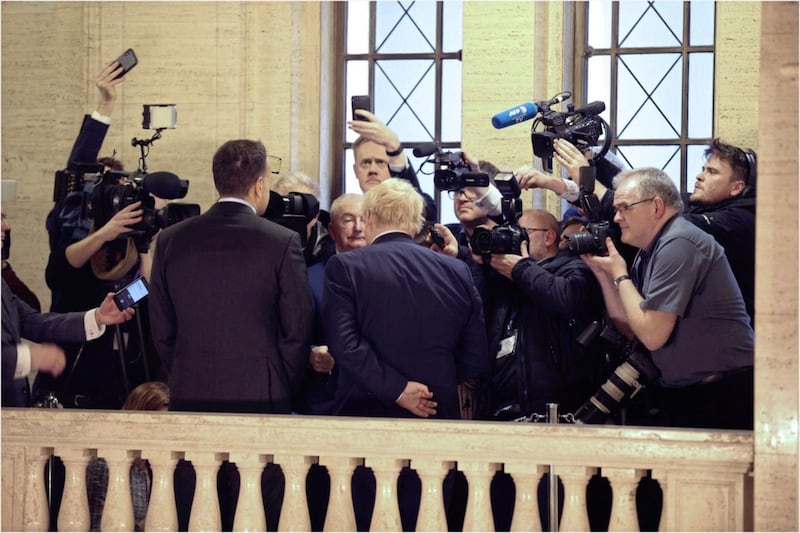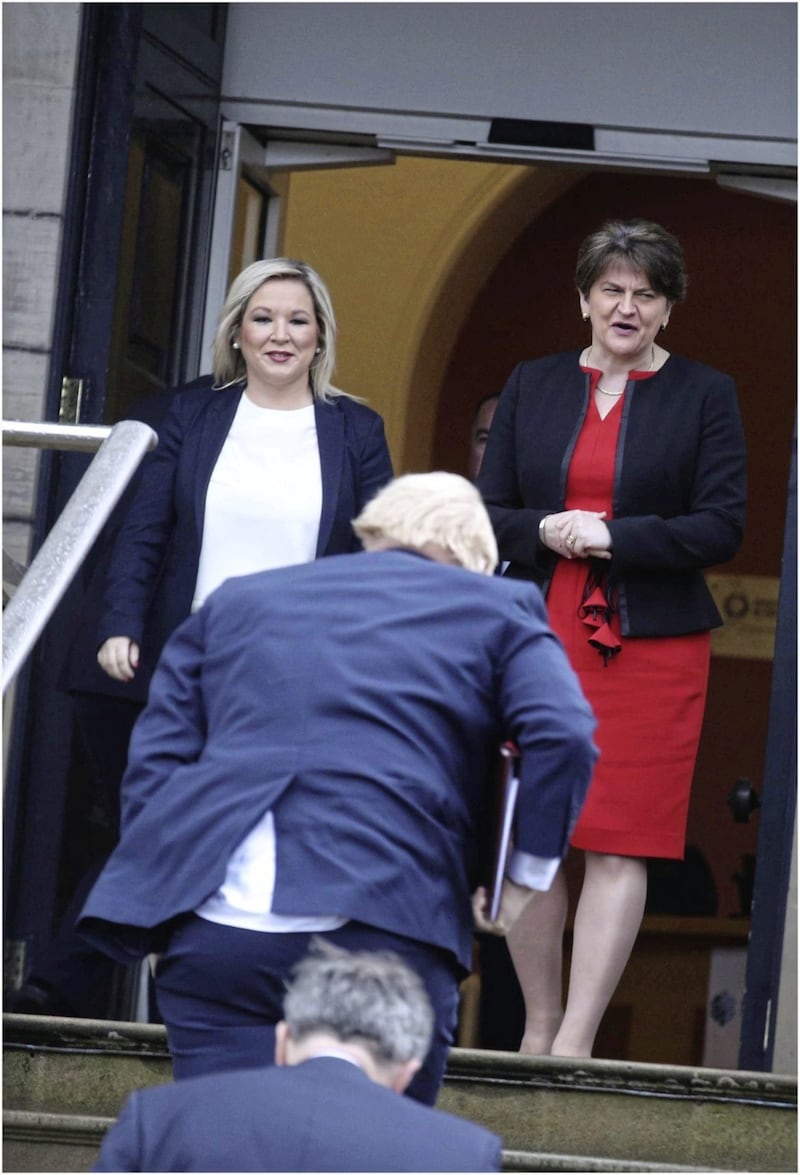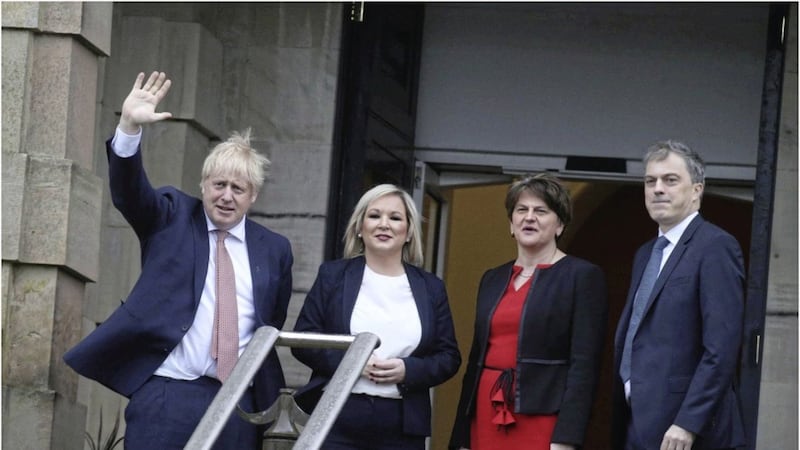WITH any luck yesterday was not a particularly portentous one for Northern Ireland.
British prime minister Boris Johnson swept into Belfast shortly before 11am, fresh from meeting Oman's new Sultan Haitham bin Tariq Al Said the day before in Muscat.
There was at least some compensation from the shock of the 11C temperatures drop for the Tory leader, with Storm Brendan's 56mph winds relieving him of the well-documented need to self-tousle his trademark straw-coloured locks.
He emerged from the state car at his dishevelled best, shirt flapping freely for the first photocall at Stormont Castle with First Minister Arlene Foster, deputy First Minister Michelle O'Neill and secretary of state Julian Smith - a trio who clearly know their way around a can of Elnett.
After asking Ms O'Neill for tips on achieving a more natural blonde (probably), and meeting ministers in the restored executive at Stormont Castle, Mr Johnson ambled off the short distance to Parliament Buildings where he was greeted by newly appointed speaker Alex Maskey.

"The British are arriving through the front door, while the Irish have to use the tradesman's entrance," one reporter from the Republic observed acidly as the media assembled in expectation in the Great Hall, which serves as the entrance to the north's seat of government.
Read More: Stormont deal: How much will the 'New Decade, New Approach' pledges cost?
"It's because London is writing the big cheque and Dublin is just stumping up the petty cash."
As backdrops go, the splendour of the Italianate marble lit generously by crystal chandeliers is usually an impressive one, but likely appeared more of a gaudy modern folly for the 55-year-old who attended the 15th century Eton College from the age of 13, before moving on to the mediaeval magnificence of Balliol College, Oxford.
With the air of a man who has never had cause to doubt the warmth of a welcome awaiting him, he stood gleefully before the bank of cameras and microphones.

His ebullience was no doubt bolstered by his press team's work in securing the details of the questions journalists planned to ask him before he arrived.
Nevertheless, Mr Johnson's trademark off-the-cuff delivery was in full effect, with accompanying Tiggerish knee-bend, arm-waving mannerisms that called the `Hokey Cokey' irresistibly to mind.
For good measure he even threw in an artfully bungled soundbite: "Never mind the hand of history on my shoulder, I see the hand of history... no [pause, consternation etc] I see the hand of the future beckoning us all forward."
After cheerfully and loquaciously not answering any of the pre-arranged questions, he departed to meet Taoiseach Leo Varadkar who had been spirited into the building in a less public flourish.
Protocol was broken when clapping erupted as he left, quickly traced to a group of St Joseph Primary School, Dunloy pupils whose outing had coincided with the beckoning hand of the future.
For the milling journalists left behind, the detail of the British government's financial commitments remained as opaque as the low-lying clouds which were now obscuring the hill's usually panoramic view of Belfast.
As the meeting dragged on and on, the sky fell dark, the wind howled and heavy rain pounded at the windows.
Down below, tourists on a solitary `Titanic and City Tours' bus pressed their noses against the window and took desultory pictures with their phones.
Notional deadlines for a promised joint press conference passed, were reset and suddenly brought forward, only for the event to be re-designated as `pool-only', open only to a few outlets whose recordings would be shared with those not invited.
It was also relocated to a first-floor corridor.
News outlets pushed their way up the famous staircase to the open corridor above, only to be repulsed by security staff, calling frantically for back-up.
Wedged into a corner under an applauding portrait of the late Martin McGuinness, the survivors waited for the two leaders, one harassed veteran reporter observing afterwards: "They may as well have had it in the toilet cubicle."
Messrs Johnson and Varadkar had to squeeze in the cramped space when they arrived, with viewers at home later treated to a closer inspection of the latter's ear and the former's nostril than was strictly desirable.
With assembly press officers at pains to point out they had nothing to do with the mayhem, one was left wondering if Northern Ireland should be worried that between them the British and Irish governments couldn't organise a press conference in a parliament building.








